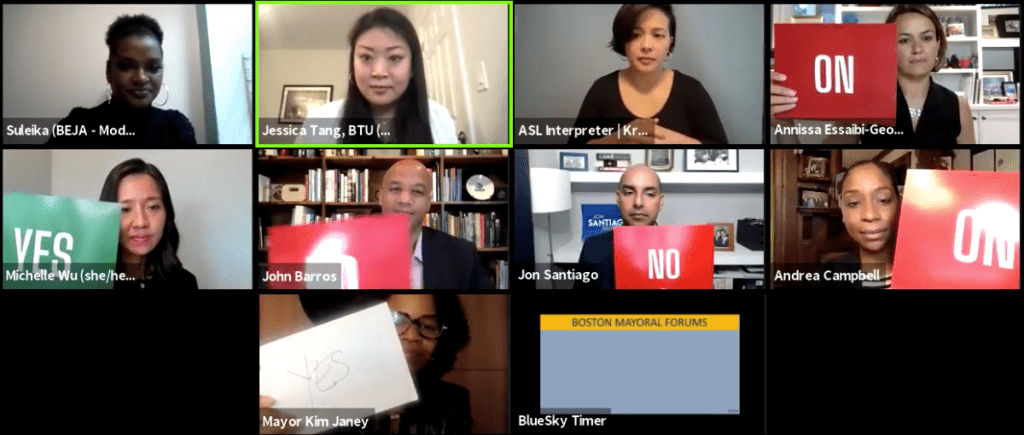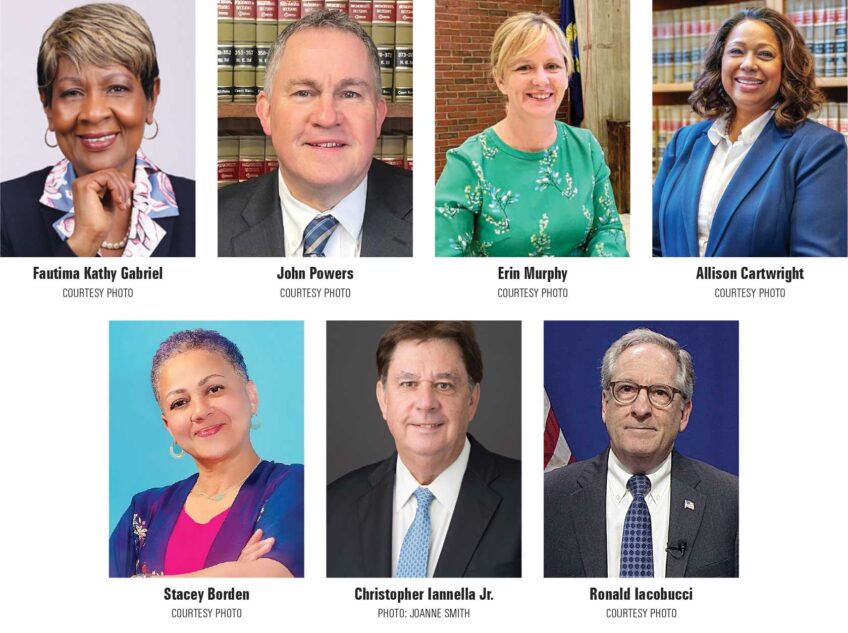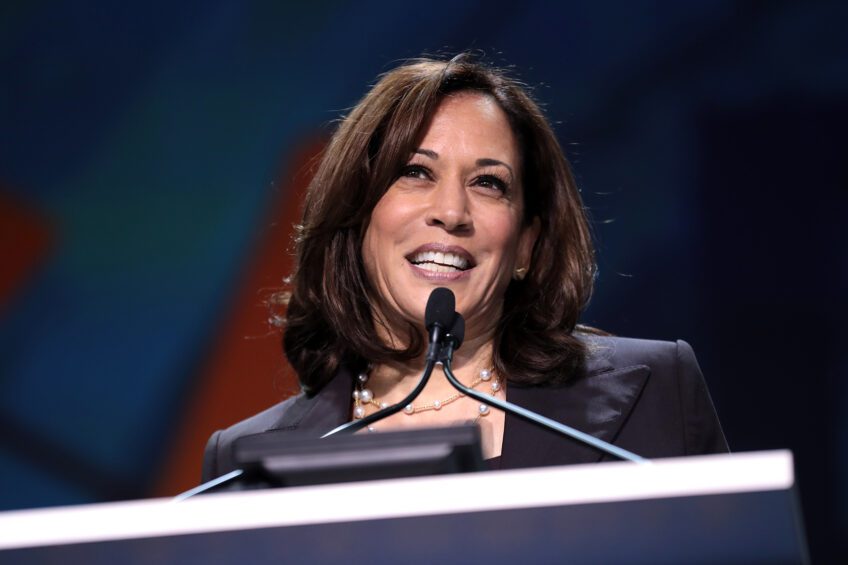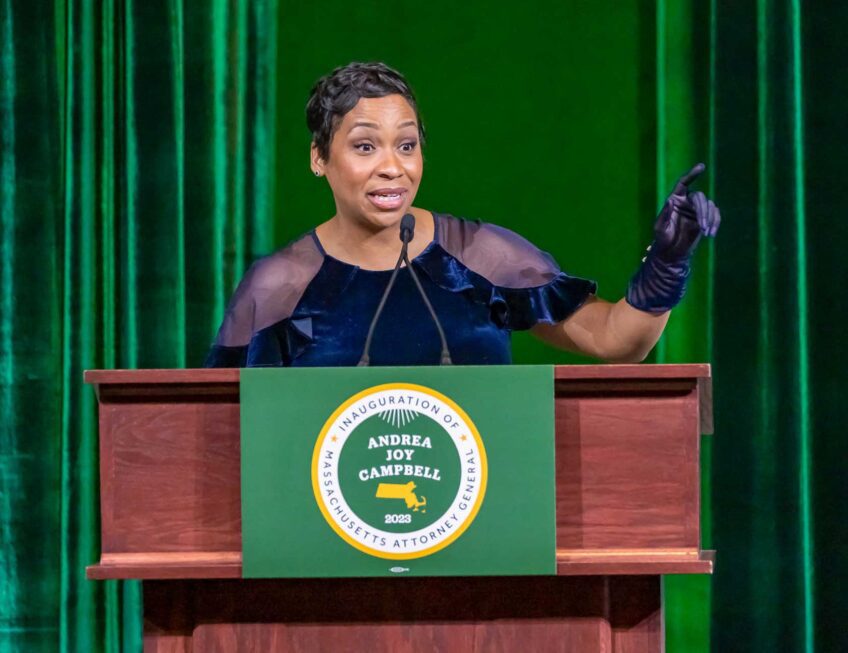
A new poll shows at-large City Councilor Annissa Essaibi George leading in the mayoral race with support from 22% of likely voters, inching ahead of at-large Councilor Michelle Wu, who had support from 18% and acting Mayor Kim Janey, who had support from 16%.
The poll, which surveyed 550 people between May 25 and May 30, showed District 4 Councilor Andrea Campbell with 6% of the vote and state Rep. Jon Santiago and former City of Boston Economic Development Chief John Barros each with 5%. The greatest portion of likely voters — 29% — are still undecided.
The poll was conducted by a pair of political consulting firms — Poll Progressive and Emancipated Group — and queried likely voters on mayoral preferences as well as on several key issues that have emerged in this year’s municipal elections: reducing the police budget, eliminating fares on the MBTA and lowering the voting age to 16. The margin of error was 4.1%.
It shows significant movement for Essaibi George, who in an April 28 Emerson College Polling survey came in with 14% of respondents’ support — one point behind Janey and two behind Wu. That poll showed 36% of voters undecided.
So what’s changed in the last month? For one, the field is now set, nearly two weeks past the May 18 deadline for nomination papers. Although much of the debate in this year’s mayoral and at-large City Council races has revolved around typically progressive issues such as reining in police abuse, equity in city contracting and returning to an elected school committee, Essaibi George seems to have cornered the moderate and conservative vote, favoring an appointed school committee and opposing calls to remove police officers from schools and shutter the department’s controversial gang database.
Barros and Santiago, who have taken similar positions to those held by Essaibi George, may lack the name recognition she has earned through three successful citywide races.
“She has won at-large races with a pragmatic progressive approach, where she’ll go right on some issues and left on others,” said David Fadul, a co-founder of Poll Progressive. “The other moderate candidates have been quite weak.”
Essaibi George may also benefit from having branded herself as the education candidate, Fadul notes. Among voters who listed education as their top concern, Essaibi, a former high school teacher, led the pack, with 32% of their support.
While the highest proportion of white voters in the survey — 27% — support Essaibi George, Wu comes in second with 23% of white voters’ support.
Among Black voters, Janey leads with 34% of their support, but 35% of Black voters remain undecided in the race.
Issues for voters
A near-majority of voters polled — 49% — said they would support reducing the Boston Police Department budget and diverting the funds to violence prevention programs, while 36% of voters were opposed to the idea and 15% were unsure. That question polled best with Black voters, 61% of whom said they would support such a move. Nearly as many Latino voters, 60%, agreed, while 43% of whites said they favored cutting the police budget and 45% of whites were opposed.
Asked whether they would support a reduction of MBTA fares, 36% of voters agreed, while 20% said they were in favor of abolishing fares for the T. Thirty-five percent of voters said they favored no change to MBTA fares.
A slim majority of voters polled — 55% — oppose calls to lower the voting age to 16.
“The opposition runs across all demographics except African Americans, who support it 47% to 37%,” Fadul notes.
Housing led among issues voters are most concerned about, with 20% of respondents listing it as their top concern. Education was second, with 16% of voters listing it as a top concern, followed by jobs, with 13%.
Among those who listed housing as their top concern, 25% supported Kim Janey and 22% supported Michelle Wu.
The survey was conducted via text-message-to-web polling and interactive voice response for land lines. While the number of Black, Latino and Asian respondents to the poll were not proportionate to their share of the voting population, their responses were weighted to reflect the demographics of the city’s voters. Similar weighting was done for educational attainment.
Where the candidates stand
In a debate last week co-sponsored by the Boston Teachers Union and the Boston Education Justice Alliance, Janey, Wu, Santiago and Campbell all said they’re in favor of a hybrid elected/appointed school committee. Barros, a former School Committee member, and Essaibi George said they were in favor of the body remaining all-appointed.
Asked whether they would support extending the grade and zip-code-based admissions process for the city’s three selective high schools, Janey and Wu said yes, while Barros, Campbell, Essaibi George and Santiago said no.
Asked whether they would support eliminating the MCAS exam as a Massachusetts graduation requirement, all but Santiago and Campbell responded affirmatively.
Santiago and Essaibi George said they would not support removing police officers from school buildings. Barros, Essaibi George and Santiago said they would not support dismantling the Boston Police Department’s controversial gang database.







